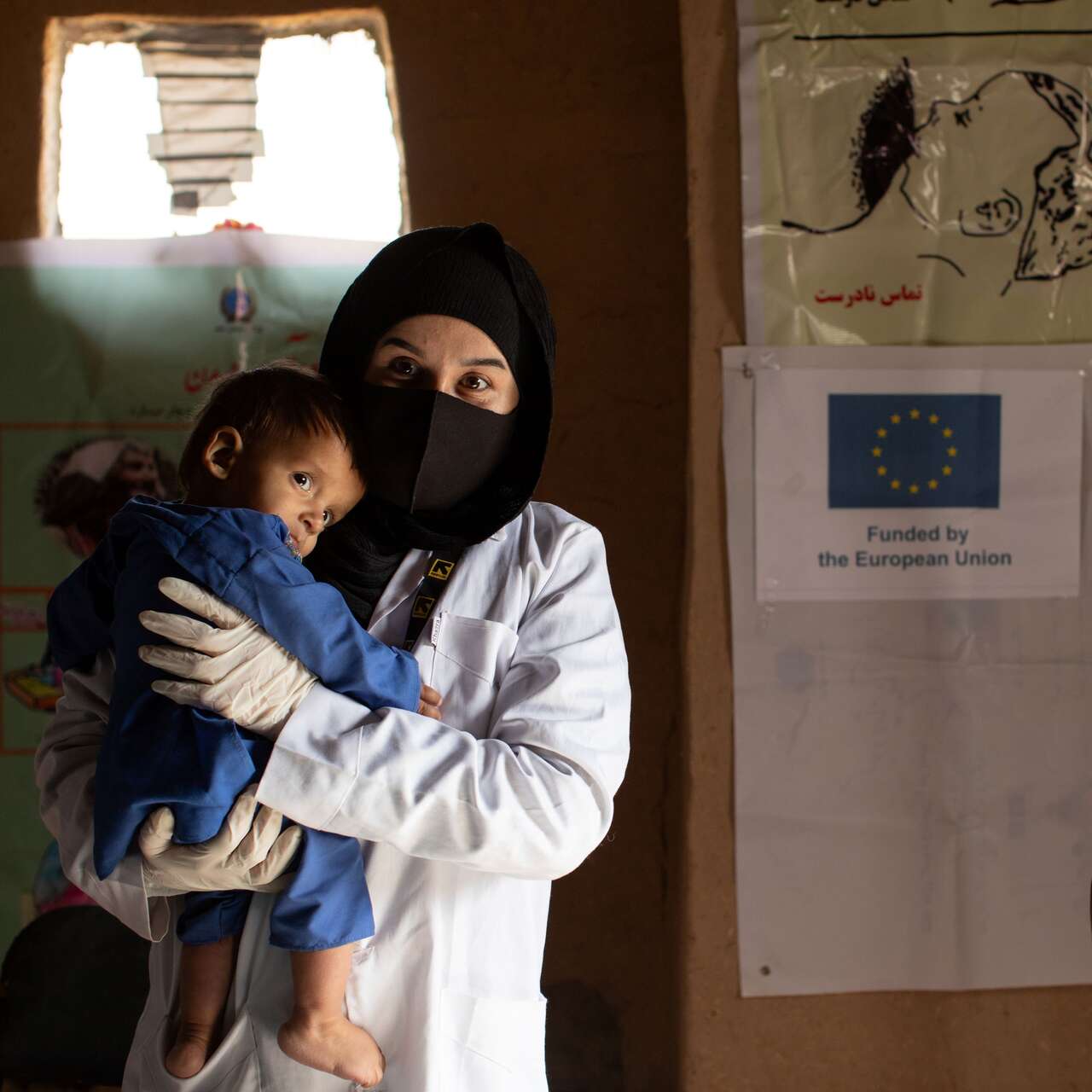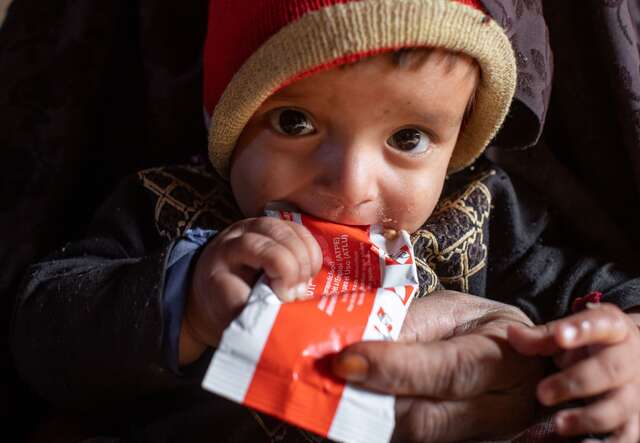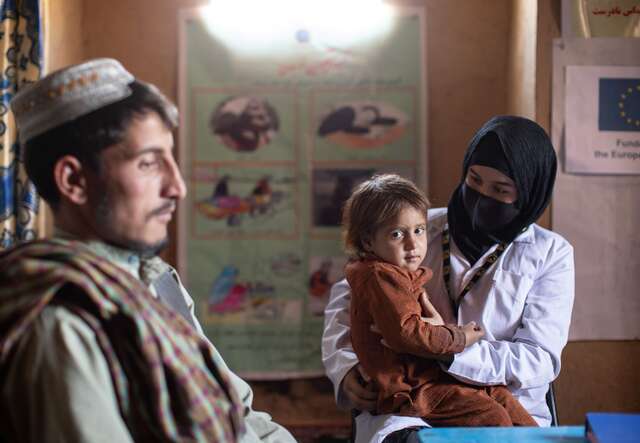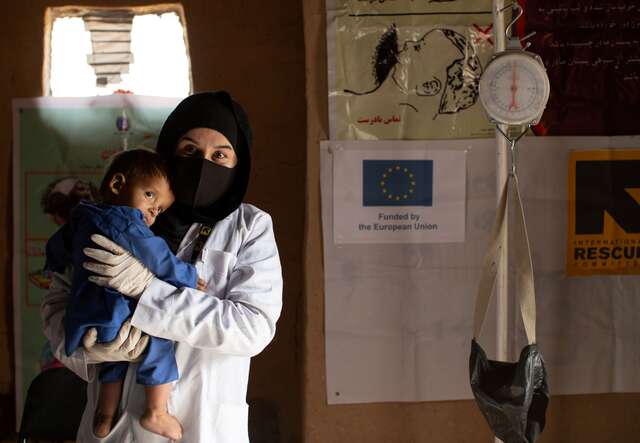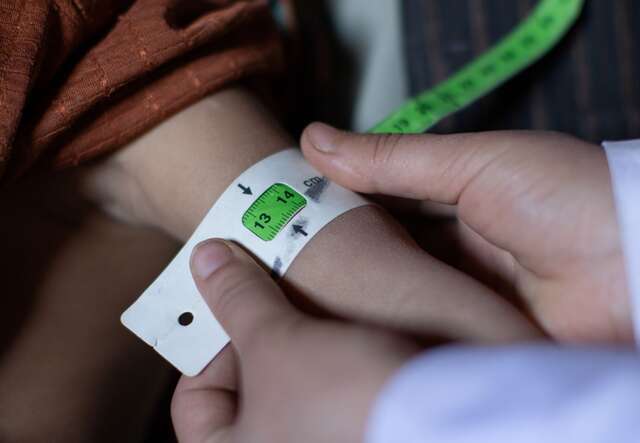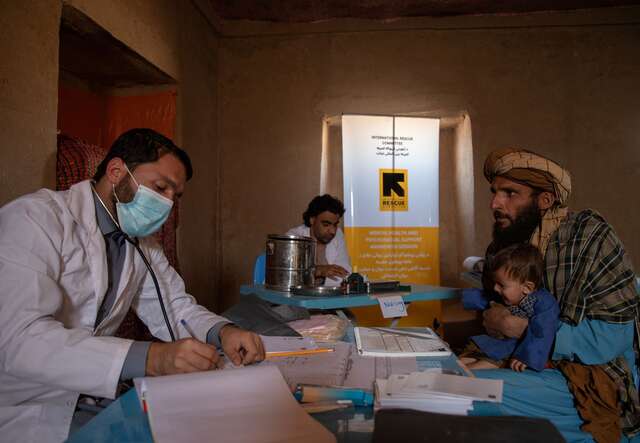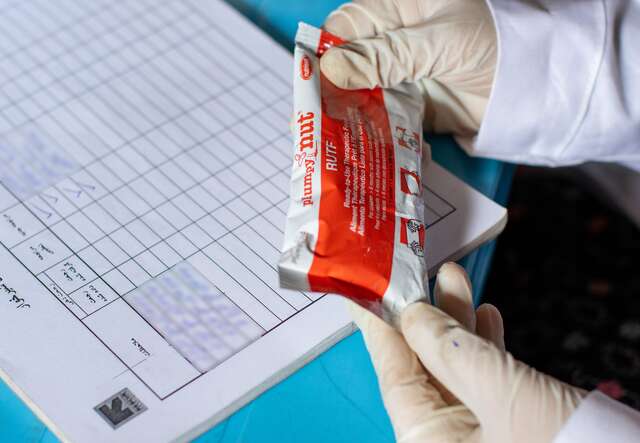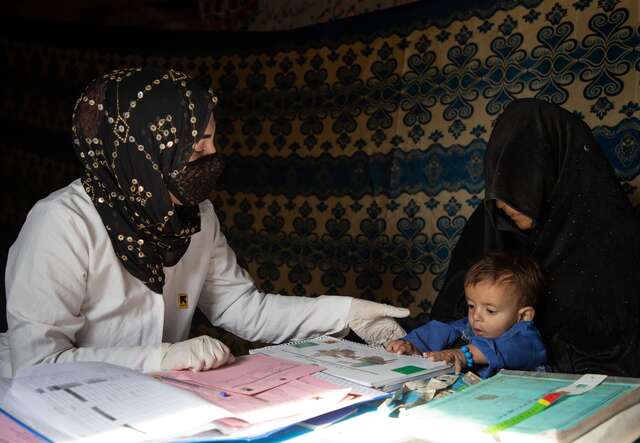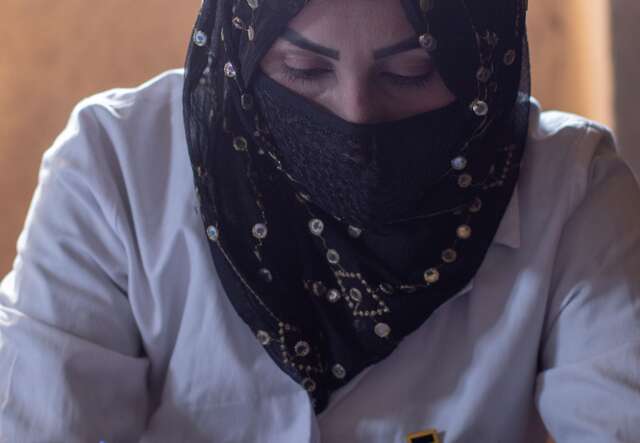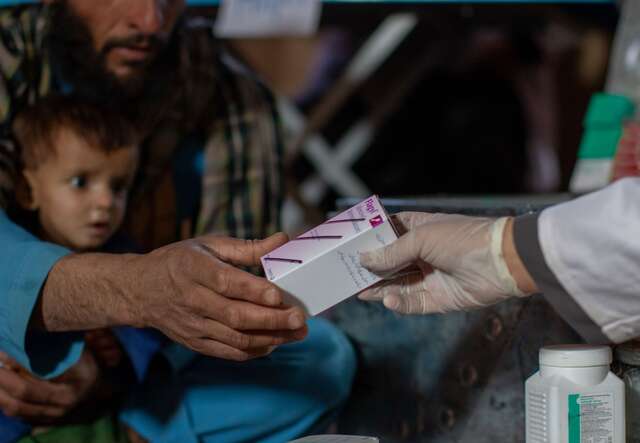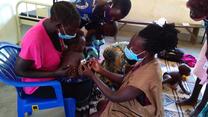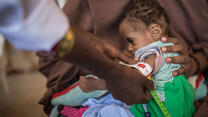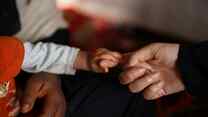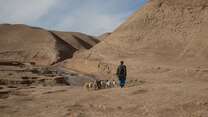The past few decades of conflict and natural disasters, coupled with the declining economy, have proven detrimental to Afghanistan’s most vulnerable populations. The ongoing drought has quickly led to one of the highest rates of malnutrition in the world. Close to 3.2 million children and 840,000 pregnant and nursing mothers are experiencing malnutrition in Afghanistan.
The International Rescue Committee (IRC) has been providing humanitarian aid in Afghanistan since 1988. With funding from the European Union (EU), IRC teams provide health and nutrition services to families in remote areas across ten provinces where there is little to no access to healthcare facilities.
10 month-old Shams Ullah eats a nutrient dense energy food called RUTF provided by the IRC to help him gain weight and fight malnutrition. He sits at home with his grandmother, Boragi.
Photo: Mahab Azizi for the IRC
The Badghis province of Afghanistan in particular has been suffering from extreme droughts for many years. They continue to devastate its population. The main source of income for countless families comes from agriculture, and without water many of them live in severe poverty. Food insecurity runs rampant.
IRC counsellor, Ruqia Moqtased, holds 2 year-old Samia to do a health check-up. In the foreground is Samia’s father, Muhammad Sadiq, who brought her to the clinic for treatment.
Photo: Mahab Azizi for the IRC
Many of the areas in which the IRC leads health response teams have terrible infrastructure, beaten roads which prove difficult to traverse, because of which locals are unable to travel to nearby hospitals or clinics. Many cannot afford the travel fare either. In many such areas the IRC runs crucial healthcare clinics to provide necessary medical services.
Almost all of IRC’s staff members are Afghans rooted in the communities they choose to serve. Our capacity to work so closely within communities across the country is established through IRC staff members’ expertise and our decades-long presence in the country. This has been vital in helping us earn local trust and benefit from a deeper understanding of the specific needs within different communities.
IRC counsellor Ruqia Moqtased comforts Shams Ullah during his malnutrition exam
Photo: Mahab Azizi for the IRC
The IRC carries out nutrition programming across its entire health response structure in 10 provinces within Afghanistan. Every child that attends an IRC-run or supported health centre, or visits an IRC mobile health and nutrition team, is weighed and measured by an IRC staff member or health volunteer so that their growth can be tracked to ensure full recovery.
IRC mobile health team counsellor Ruqia Moqtased examines 2 year-old Samia with MUAC tape; the green color indicates she has recovered from acute malnutrition.
Photo: Mahab Azizi for the IRC
Measuring Mid Upper Arm Circumference (MUAC) screening, which identifies the level of malnutrition a child may be suffering - from Severe or Moderate Acute Malnutrition - is carried out by community health volunteers or by the mothers within the community who attend IRC-supported care groups. Children who are diagnosed with malnutrition are then treated and monitored according to their level of needs.
Dr. Abdul Rouf Ibrahimi discusses the health condition and corresponding treatment for 10-month old Shams Ullah with his father, Abdul Haq.
Photo: Mahab Azizi for the IRC
Abdul Haq came to the IRC clinic to get his son treated for malnutrition.
“I was worried that maybe I’d lose my child due to hunger,” he tells us. He was given the necessary medication and nutrient-dense food. He is now healthy and, having regained his energy, he is active and playful again."
IRC counsellor Ruqia Moqtased holds ready-to-use therapeutic food to give to Samia to treat her malnourishment.
Photo: Mahab Azizi for the IRC
Once the team has detected the level of malnourishment, treatment is employed according to this measure. For example, Ready to Use Therapeutic food (RUTF) is given to children with severe-acute malnutrition (SAM) based on their weight, and Ready to Use Supplementary Food (RUSF) is given to children with moderate-acute malnutrition (MAM) at two sachets per day.
Malnourished pregnant and/or lactating women are given Wheat Soya Blend (WSB) or Super Cereal to bring them back to healthy nutrition levels.
IRC counsellor Ruqia Moqtased examines Shams Ullah, in the lap of his grandmother, for malnutrition.
Photo: Mahab Azizi for the IRC
In addition to treatment services the IRC also offers preventative services, such as those targeted toward pregnant and/or lactating mothers.
IRC counsellors provide Infant and Young Child Feeding (IYCF) counselling sessions for mothers or caregivers of children under 2 years. They are offered training around breastfeeding and weaning, as well as on how to prepare food that will nourish their children. These counselling services are led by IRC staff and community health volunteers within community-based care groups. IYCF counsellor Ruqia Moqtased, part of the Mobile Health and Nutrition Team in Moqur, leads some of these education and counselling groups.
IRC nutrition counsellor Najiba Rahimi writes medical reports after examining patients suffering from malnutrition.
Photo: Mahab Azizi for the IRC
An important service implemented within the Mobile Health and Nutrition Teams (MHNTs) is free counselling for daily healthcare practices and daily nutrition education for mothers and children. Funded by the EU, these services are aimed at preventative care and guidance. Nutrition counsellor Najiba Rahimi, also part of the Moqur health team, finds it vital to inform clients about the importance of nutritional values in the food commodities they are given so that, after recovery, they are able to keep their restored health stable.
The IRC pharmacist, Nematullah Ayubi, gives Abdul Haq medication for his son at the IRC health clinic.
Photo: Mahab Azizi for the IRC
Our joint hope with the EU in dispensing valuable information on healthcare guidelines, such as illness prevention and growth monitoring, is to equip families with healthcare tools that could bring change in their everyday lives. And so, emphasis is placed on having a healthy lifestyle. This co-presence of treatment and prevention, therefore, brings primary healthcare to the most vulnerable in Afghanistan; providing critical medical services where, otherwise, there would be little to none.
About our work with the European Union
